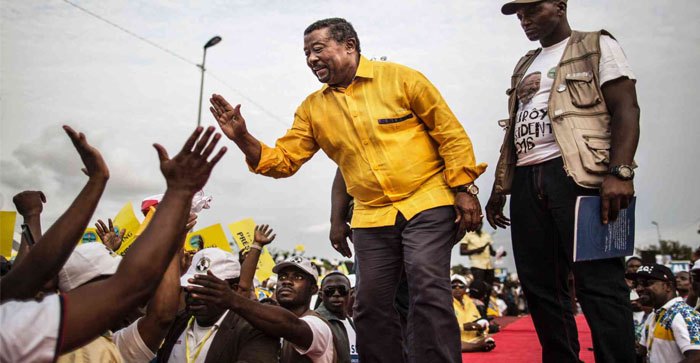(3 minutes read)
Gabon will hold presidential, legislative, and local elections on August 26. The Council of Ministers announced the convening of the electoral college for the election of the President of the Republic plus members of the national assembly and municipal councils in August.
Gabon will hold presidential, legislative, and local elections on August 26. The Council of Ministers announced the convening of the electoral college for the election of the President of the Republic” plus members of the national assembly and municipal councils in August.
While President Ali Bongo Ondimba has not yet said whether he will stand again, he is widely expected to run for re-election against a very divided opposition. Bongo’s powerful Gabonese Democratic Party (PDG) holds strong majorities in both houses of parliament. It is pushing for the president to announce he will run again.
Bongo came to power in 2009 when he took over from his father, Omar Bongo Ondimba, and was narrowly re-elected in 2016. A stroke in 2018 kept him on the sidelines of politics for months. His mobility is still somewhat reduced. In recent months, the president has increased tours of the country and has participated in various international summits and official visits abroad. The Bongo family has ruled the country for 55 years already, with the opposition regularly branding them a dynastic power.
So far, however, the opposition has failed to agree on a single candidate for the presidential election, with between 15 and 20 candidates having announced their intention to run. Amongst those in the opposition, is Alexandre Barro Chambrier, from the Rassemblement pour la Patrie et la Modernité (RPM) party. One of the president’s staunchest critics, he has yet to announce his intentions of running.
Read Also:
https://trendsnafrica.com/gabon-may-hold-election-in-august-president-ali-bongo-ondimba-to-contest/
Gabon is one of the richest African countries, in terms of GDP, thanks to its petrol, timber, and manganese production, as well as its low population (2.3 million). It is amongst the top producers of petroleum in sub-Saharan Africa, with the resource accounting for 38.5% of its GDP and 70.5% of its export revenue.





